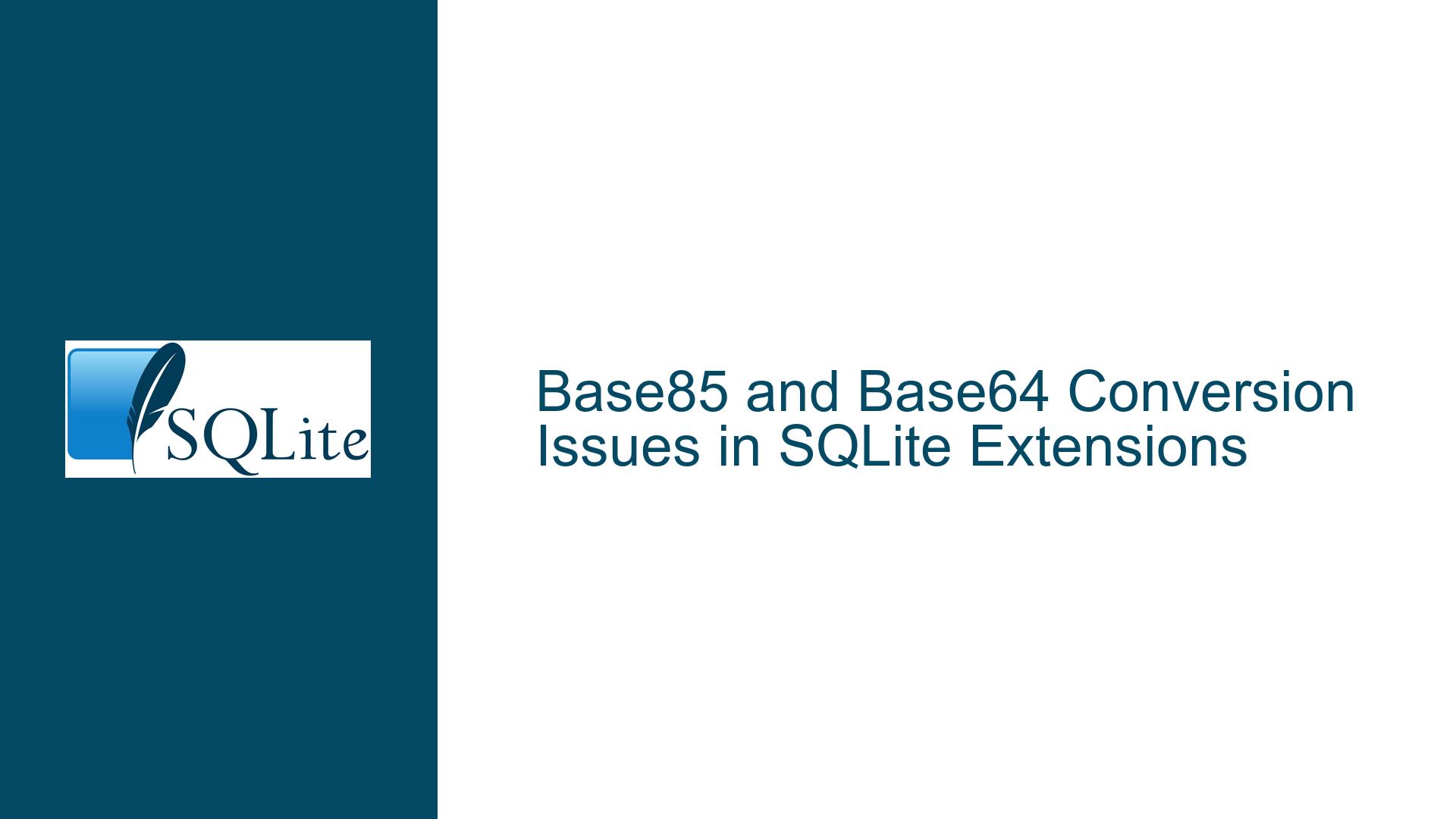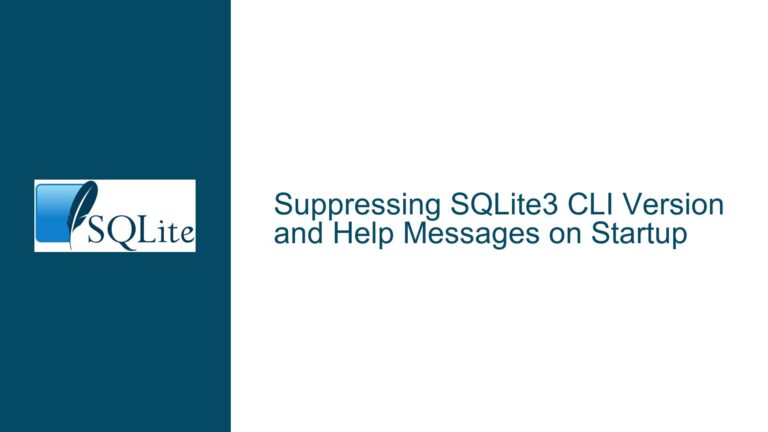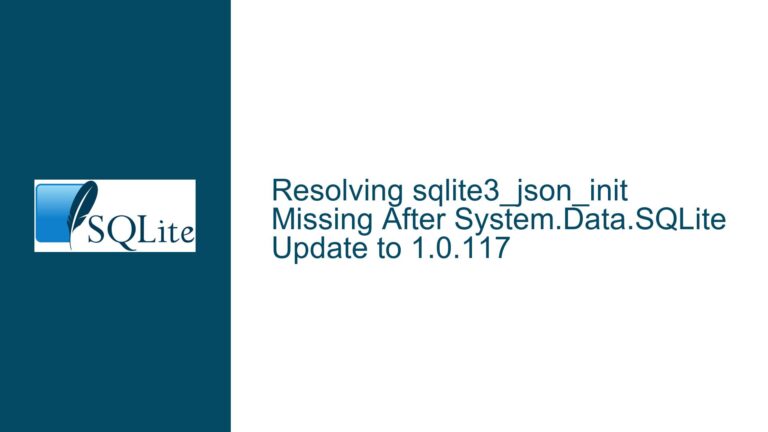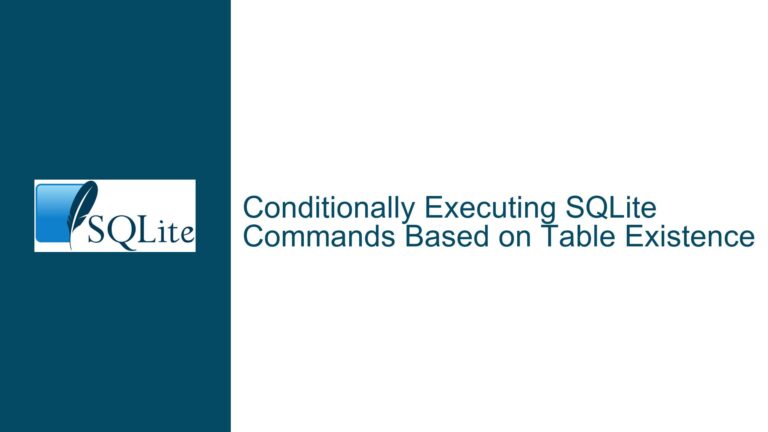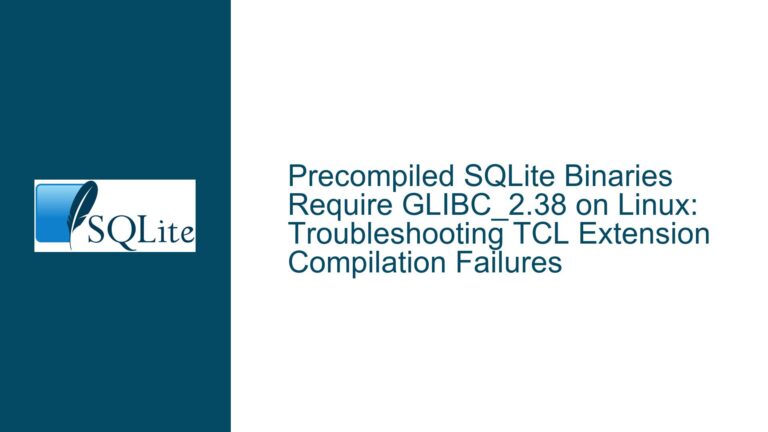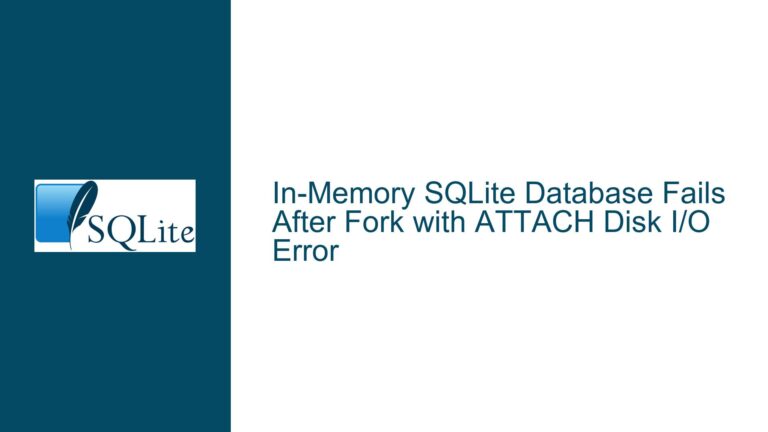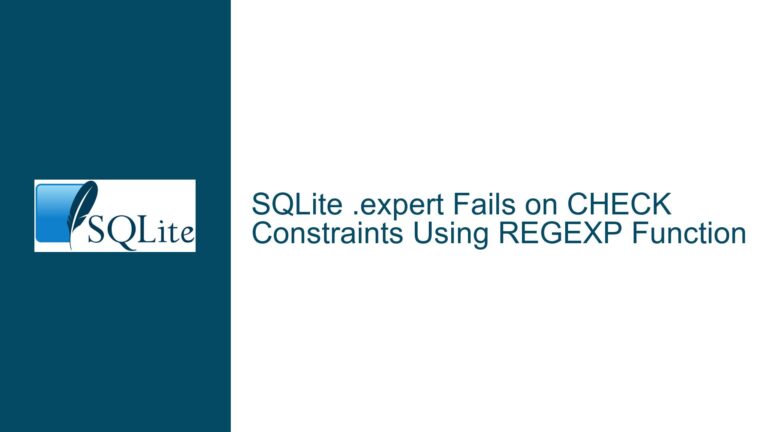Base85 and Base64 Conversion Issues in SQLite Extensions
Understanding Base85 and Base64 Conversion in SQLite Extensions
The core issue revolves around the implementation and usage of Base85 and Base64 conversion functions within SQLite extensions. These functions are designed to facilitate the conversion of binary data (blobs) into text formats that are compatible with CSV or other text-based storage and transmission methods. The discussion highlights the development, testing, and potential integration of these extensions into SQLite, as well as the challenges and considerations that arise during their implementation.
Base85 and Base64 are encoding schemes that allow binary data to be represented as ASCII text. This is particularly useful when dealing with systems or protocols that are designed to handle text but not binary data. The SQLite extensions discussed provide functions to encode blobs into Base85 or Base64 text and decode such text back into blobs. However, the implementation of these functions is not without its challenges, including ensuring robustness, handling malformed inputs, and deciding where these functions should reside within the SQLite ecosystem.
Potential Challenges in Base85 and Base64 Conversion
Several potential challenges and issues can arise when working with Base85 and Base64 conversion in SQLite extensions. One of the primary concerns is the robustness of the conversion functions. The functions must be able to handle a wide variety of inputs, including edge cases and malformed data, without failing or producing incorrect results. This requires thorough testing and validation to ensure that the functions behave as expected under all circumstances.
Another challenge is the performance of the conversion functions. Encoding and decoding large blobs can be computationally intensive, and the efficiency of these operations can impact the overall performance of the database. Optimizing the conversion functions to minimize their impact on performance is crucial, especially in applications where large volumes of data need to be processed.
Integration of these extensions into SQLite is also a significant consideration. The discussion raises the question of whether these functions should be included in the core SQLite library or provided as separate extensions. Including them in the core library would make them readily available to all users, but it could also bloat the library with functionality that not all users need. On the other hand, providing them as separate extensions allows users to include them only when necessary, but it also requires users to manage and load these extensions themselves.
Detailed Troubleshooting and Solutions for Base85 and Base64 Conversion
To address the challenges and issues related to Base85 and Base64 conversion in SQLite extensions, a comprehensive approach to troubleshooting and problem-solving is required. This involves several steps, including thorough testing, performance optimization, and careful consideration of integration strategies.
Testing and Validation: The first step in ensuring the robustness of the conversion functions is to conduct extensive testing. This includes testing with a wide variety of inputs, including edge cases and malformed data. The goal is to verify that the functions can handle all possible inputs without failing or producing incorrect results. Automated testing frameworks can be used to streamline this process and ensure that all test cases are covered.
Performance Optimization: Once the functions have been validated, the next step is to optimize their performance. This involves profiling the functions to identify any bottlenecks and implementing optimizations to reduce their computational overhead. Techniques such as loop unrolling, memory pooling, and parallel processing can be used to improve the efficiency of the conversion functions.
Integration Strategies: The final step is to determine the best way to integrate these functions into SQLite. This involves weighing the pros and cons of including them in the core library versus providing them as separate extensions. If the decision is made to include them in the core library, care must be taken to ensure that they do not bloat the library or introduce unnecessary dependencies. If they are provided as separate extensions, clear documentation and easy-to-use loading mechanisms should be provided to make it as simple as possible for users to include them in their projects.
Handling Malformed Inputs: One of the key challenges in implementing Base85 and Base64 conversion functions is handling malformed inputs. This includes inputs that are not properly encoded, contain invalid characters, or are missing padding characters. The functions must be designed to detect and handle these cases gracefully, either by returning an error or by attempting to correct the input if possible. This requires careful consideration of the encoding specifications and thorough testing to ensure that all possible malformed inputs are handled correctly.
Ensuring Compatibility: Another important consideration is ensuring compatibility with existing systems and protocols. Base85 and Base64 are widely used encoding schemes, and it is important that the SQLite extensions adhere to the relevant standards and specifications. This includes ensuring that the encoded output is compatible with other systems that may need to decode it, and that the decoding functions can handle encoded data produced by other systems.
Documentation and Examples: Finally, providing clear and comprehensive documentation is essential for the successful adoption of these extensions. This includes detailed explanations of how to use the functions, examples of common use cases, and guidelines for troubleshooting and debugging. Providing example code and sample data can also help users understand how to integrate the functions into their own projects.
In conclusion, the implementation of Base85 and Base64 conversion functions in SQLite extensions involves several challenges and considerations. By conducting thorough testing, optimizing performance, carefully considering integration strategies, and providing clear documentation, these challenges can be effectively addressed, resulting in robust and efficient extensions that enhance the functionality of SQLite.
